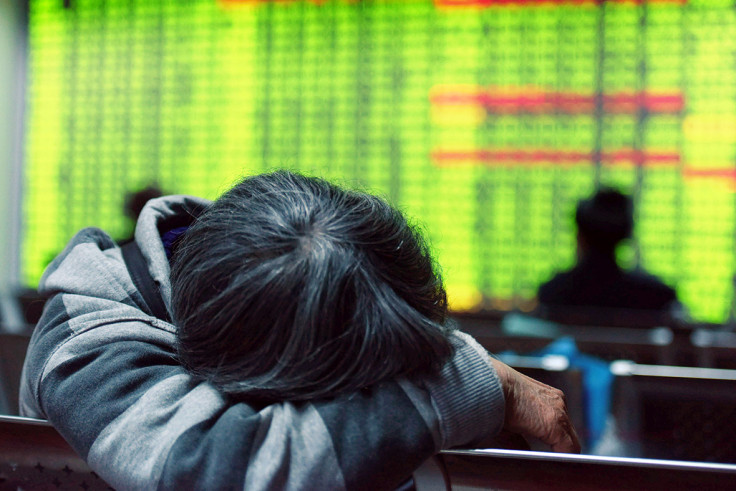Market round-up: FTSE and European stocks in the red as China enters bear market

UK and European stocks were firmly in the red halfway through the session on Friday 15 January, after fresh worries over a slowdown in China triggered a sell-off in Asian equity markets and oil prices tumbled below the $30 (£20.9, €27.5) a barrel threshold.
Shortly before the midway point of the session, London's FTSE 100 and Germany's DAX were both down 1.31%, while France's CAC 40 lost 1.48% and the Pan European Stoxx 600 Index was 1.79% lower.
Having momentarily halted their decline in the previous session, crude prices resumed their slump with both Brent and West Texas Intermediate falling sharply. The former lost 3.3% to trade at $29.89 a barrel (£20.80), while the latter plunged 5.19% to $29.66 (£20.68) a barrel.
"Brent crude has once again dipped below $30, regardless of rumours that an emergency OPEC meeting might be convened," said IG's market analyst Alastair McCaig. "At these prices, there remains only a handful of nations capable of producing oil at cost-effective levels, and even those have profit margins that leave little to excite."
Falling crude prices put oil-related stocks under severe pressure, with Anglo American, BHP, Glencore and Rio Tinto among the main losers on the FTSE 100.
The slump in oil prices came as Chinese stocks entered a bear market – defined by a 20% decline from its most recent high – which in turn dragged stocks lower across the region.
The Shanghai Composite Index tumbled 3.55%, while Hong Kong's Hang Seng slid 1.50% and Japan's Nikkei 225 fell 0.54%. Data released earlier in the session showed Chinese banks issued CN¥ 597.8bn (£63.1bn, €83.1bn, $90.7bn) of new yuan loans in December, sharply down from CN708.9bn in the previous month and short of the CN¥700bn analysts expected.
Meanwhile, the People's Bank of China guided the yuan steady against the US dollar for the sixth consecutive session, placing its currency at 6.5637 to one dollar, as Beijing authorities attempt to stem the volatility that has gripped Chinese markets of late. "The PBoC is continuing to fix the yuan at relatively strong levels to try to bring some stability to markets," said Mic Mills, head of client services at Capital Index.
Closer to home, data released by the Office for National Statistics showed Britain's construction output suffered an unexpected decline in November 2015, recording its biggest annual drop since May 2013. Construction output declined 0.5% month-on-month compared with a 0.2% gain recorded in the previous month and with analysts expectations for a 0.5% increase. On a year-on-year basis, output fell 1.1% against forecast for a 0.1% decline and sharply lower than the 1.1% increase registered in October.
"The construction sector clearly had a very disappointing second half of 2015," said Howard Archer, chief UK & European economist at IHS Global Insight. "However, it should be borne in mind that considerable doubts remain over the accuracy of the hard construction data and that survey evidence has been pointing to growth in the sector, albeit appreciably weaker than the peak levels seen in 2014."
© Copyright IBTimes 2025. All rights reserved.




















